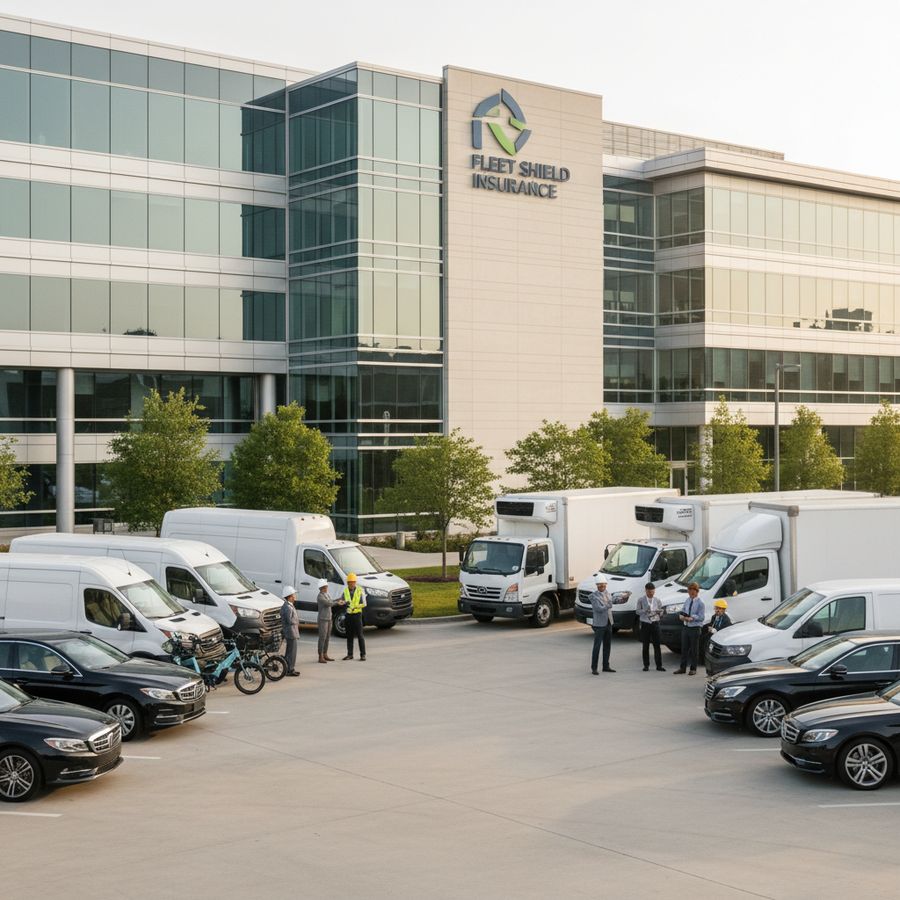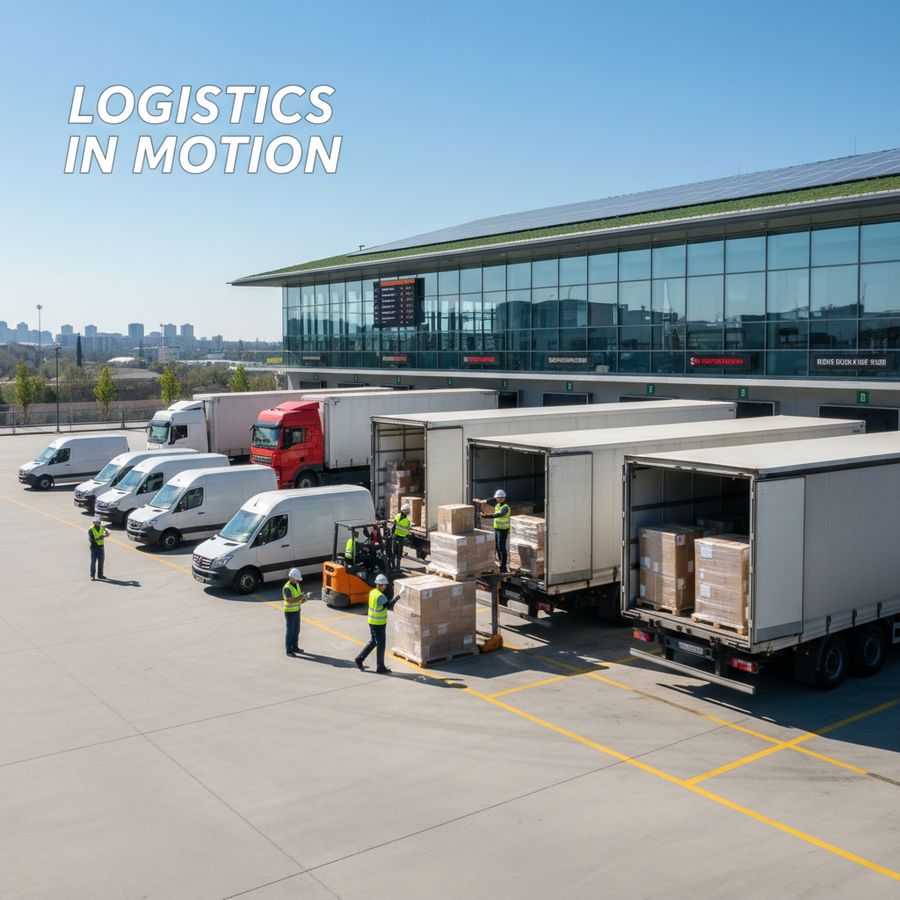Fleet Insurance for Different Industries Explained
Overview
Fleet insurance industries play a crucial role in protecting businesses that operate multiple vehicles under one policy. Unlike standard vehicle insurance, fleet insurance offers tailored coverage designed specifically for businesses managing a collection—or fleet—of company vehicles. This approach not only simplifies administration but often provides cost savings and comprehensive protection suited to the diverse needs of different industries.
Fleet insurance is fundamentally about shielding a business's assets on wheels, covering everything from passenger cars and vans to trucks and specialized vehicles. The coverage typically includes the mandatory third-party liability insurance, which protects against damages to others caused by the insured vehicles. However, businesses can also opt for more extensive protections such as comprehensive coverage, including damage to their own vehicles, theft, vandalism, and legal assistance.
Industry-specific insurance is particularly important because risk profiles vary widely between sectors. For example, a logistics company might require robust coverage against cargo damage and transport-related liabilities, while healthcare providers need to protect vehicles that transport patients or sensitive medical equipment. Fleet insurance policies can be customized accordingly, reflecting the unique operational risks of each industry.
"Fleet insurance offers businesses the convenience of consolidating their vehicle coverage under one policy, reducing administrative burden and often unlocking volume discounts."
Moreover, fleet insurance often comes with unique benefits such as no-claim bonus schemes that recognize when incidents are not the fault of the insured driver, allowing businesses to maintain premium discounts. This makes it an attractive option for companies looking to manage risk efficiently while ensuring compliance with legal insurance requirements.
In summary, whether you operate a small fleet or a large collection of vehicles, understanding the nuances of fleet insurance across different industries is vital. It enables you to select the right coverage that balances protection, cost-efficiency, and administrative ease, making it a strategic asset for any business reliant on commercial vehicles.

Logistics and Transport
The logistics and transport sector is one of the most intensive users of fleet insurance due to the nature of its operations. Vehicles in this industry range from small delivery vans to large trucks and trailers, all of which are exposed to various risks including road accidents, cargo damage, and theft. Logistics insurance is therefore a critical component of business vehicle insurance for companies operating in this field.
Fleet insurance for logistics businesses often includes coverage beyond the basic third-party liability. Protection against freight damage, loss, and delays is paramount, as these can significantly impact business reputation and financial stability. Additionally, the coverage may extend to transport-related legal liabilities, which can arise from cargo handling or contractual obligations.
Given the scale and complexity of logistics operations, fleet insurance policies in this industry are typically customizable. They account for factors such as:
Vehicle types and sizes in the fleet
Routes and geographical areas of operation
Frequency and nature of cargo transported
Driver experience and safety programs
Preventative measures such as GPS tracking, driver training, and security protocols can also influence premiums positively, encouraging safer and more efficient fleet management. Businesses in logistics benefit from fleet insurance by consolidating all vehicles under one policy, simplifying claims processes and administrative management.
"For logistics companies, comprehensive fleet insurance is not just a legal necessity but a strategic tool that safeguards cargo, drivers, and company reputation."
Choosing the right logistics insurance means partnering with insurers who understand the industry's specific challenges and can offer tailored solutions that include additional protections like legal assistance in case of disputes or accident-related claims.

Healthcare and Welfare
Healthcare fleet insurance addresses the unique risks faced by vehicles used in medical and welfare services. These vehicles often transport patients, medical staff, or sensitive equipment, requiring specialized coverage that ensures reliability and safety at all times.
Unlike standard fleet insurance, healthcare fleet insurance policies must consider:
Emergency response times and operational continuity
Protection of medical equipment and pharmaceuticals in transit
Coverage for patient injuries or liability during transport
Compliance with health and safety regulations
Because healthcare vehicles are critical to public welfare, any downtime due to vehicle damage can have serious consequences. Fleet insurance in this sector often includes comprehensive coverage to minimize such disruptions, including repair guarantees and rapid claims processing.
Business vehicle insurance for healthcare providers also typically incorporates passenger accident insurance, ensuring that patients and staff are protected in case of accidents. Additionally, legal assistance coverage is often included, helping navigate complex liability issues that may arise in this sensitive field.
"Healthcare fleet insurance safeguards not just vehicles but lives, ensuring uninterrupted service delivery even in the face of unforeseen incidents."
In essence, fleet insurance in healthcare and welfare is carefully tailored to balance robust protection with operational efficiency, supporting organizations that provide vital community services.
Trade and Services
The trade and services sector encompasses a broad range of businesses including retail, facility management, financial services, and installation or repair companies. Vehicles in this sector are often used for staff transportation, delivery, and onsite services, making industry-specific insurance essential to protect business assets and operations.
Fleet insurance for trade and services businesses typically covers a mixed fleet of passenger cars, vans, and light commercial vehicles. The coverage needs to address risks such as:
Damage during customer visits or deliveries
Theft or damage to tools and equipment transported in vehicles
Third-party liability during operational tasks
Many businesses in this sector benefit from additional coverage options like instrument and equipment insurance, which protects valuable tools carried in vehicles against loss or damage. This ensures that businesses can quickly resume operations after an incident without significant financial setbacks.
Fleet insurance industries within trade and services also value policies that reduce administrative tasks by consolidating all vehicle coverage into a single, manageable policy. This streamlines renewals, claims, and premium payments, allowing companies to focus on their core activities.
"For trade and services companies, comprehensive fleet insurance is a cornerstone for operational resilience and customer trust."
Ultimately, choosing the right fleet insurance in this sector means assessing the specific risks of your business activities and selecting a policy that offers flexibility and comprehensive protection tailored to your fleet’s composition and usage.
Construction and Technology
Fleet insurance in the construction and technology sectors must account for a variety of heavy-duty and specialized vehicles, including trucks, machinery transporters, and service vans. These industries often involve high-value equipment and challenging operating environments, requiring robust insurance solutions.
Industry-specific insurance for construction fleets typically includes coverage for:
Damage caused by harsh worksite conditions
Theft or vandalism of vehicles and equipment
Liability for third-party property damage or bodily injury
Protection of expensive tools and instruments transported in vehicles
Given the higher risks, fleet insurance policies for construction and technology companies often offer all-risk (comprehensive) coverage options that extend beyond basic third-party liability. These policies may also include legal assistance and passenger accident insurance for crew members traveling in company vehicles.
Business vehicle insurance in these industries needs to be adaptable to fluctuating fleet sizes and vehicle types, as projects often require temporary additions or replacements. Fleet insurance simplifies this by allowing easy adjustments within the policy framework.
"Construction and technology fleets require tailored insurance solutions that reflect the demanding environments and high-value assets involved."
Choosing a specialized fleet insurance policy not only protects vehicles but also mitigates the financial risks associated with project delays or equipment loss, supporting uninterrupted business operations.
Catering and Tourism
The catering and tourism industries rely heavily on fleets that include delivery vans, buses, and specialized vehicles such as refrigerated trucks or passenger shuttles. Fleet insurance in these sectors must address both the protection of vehicles and the safety of passengers or perishable goods during transit.
In catering, fleet insurance often focuses on safeguarding vehicles that transport food and beverages, ensuring compliance with hygiene and safety standards. Coverage against vehicle breakdowns, theft, and spoilage due to delays is crucial.
For tourism companies, protecting passenger vehicles like coaches or minibuses is paramount. This includes:
Comprehensive liability coverage for transporting passengers
Accident insurance for drivers and passengers
Coverage for vehicle damage due to long-distance travel or varying road conditions
Industry-specific insurance policies in catering and tourism often provide flexible options to cover seasonal fleet fluctuations and temporary hires, which are common in these sectors.
"Fleet insurance in catering and tourism ensures that businesses can deliver exceptional service while managing risks inherent in transporting goods and people."
By choosing a tailored fleet insurance policy, companies in these industries can protect their reputation, maintain operational continuity, and comply with regulatory requirements, all while optimizing insurance costs.
Conclusion
Understanding the nuances of fleet insurance industries is essential for businesses looking to protect their commercial vehicles efficiently. Each industry—from logistics and healthcare to construction and tourism—faces unique risks that demand customized insurance solutions.
Fleet insurance provides notable benefits compared to individual vehicle policies, such as streamlined administration, consolidated billing, and typically lower premiums thanks to volume discounts. Additionally, industry-specific insurance ensures that coverage matches operational needs, whether it’s safeguarding freight, medical equipment, specialized tools, or passengers. For more information, visit Finass Verzekert.
Business vehicle insurance through fleet policies not only safeguards physical assets but also reduces financial uncertainty by providing comprehensive risk management tailored to your sector. Incorporating additional coverages such as legal assistance, passenger accident insurance, and equipment protection further enhances the value of these policies.
"Tailored fleet insurance empowers businesses across industries to manage risk proactively, safeguard assets, and focus on growth with confidence."
In conclusion, assessing your fleet's composition, usage, and industry-specific risks is the first step toward selecting the right insurance policy. Partnering with experienced insurers who understand your sector ensures optimal coverage that supports your business goals while maintaining compliance and cost-efficiency.
Reacties
Een reactie posten